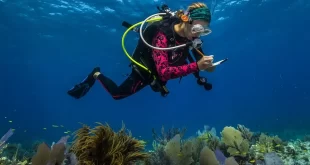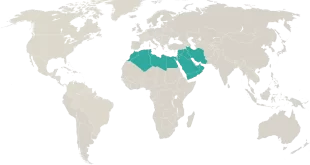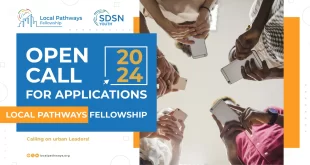The Biosciences eastern and central Africa – International Livestock Research Institute (BecA-ILRI) Hub (Nairobi, Kenya), in partnership with its UK-based partners the John Innes Centre (JIC), the Earlham Institute (EI) and Oxford Nanopore Technologies (ONT), launches an intensive training programme in genomics and bioinformatics, called Third-generation genomics and bioinformatics for agribiosciences in Africa.
About the partners
Part of the International Livestock Research Institute (ILRI) and located in Nairobi, Kenya, the Biosciences eastern and central Africa Hub (BecA-ILRI Hub) is a co-creation by ILRI and the African Union. Established in 2003, the Hub has a mission of strengthening the capacity of African countries in terms of biosciences for agricultural research. To fulfill its mission, the BecA-ILRI Hub supports its activities through three pillars: excellence in research, world-class technology platforms, and end-to-end capacity building. As the CGIAR consortium transitions into a more integrated OneCGIAR, the BecA-ILRI Hub is also proudly transforming into the OneCGIAR Biosciences for Africa centre, through which it will further its capacity to accelerate agricultural research and translate it into the fields and markets on the continent.
The John Innes Centre (JIC) is an independent, international centre of excellence in plant science, genetics and microbiology. The Centre fosters a creative, curiosity-driven approach to fundamental questions in bio-science, with a view to translating that into societal benefits. Over the last 100 years, JIC has achieved a range of fundamental breakthroughs, resulting in major societal impacts. JIC has been a long term partner of the BecA-ILRI Hub through its Alliance for Accelerated Crop Improvement in Africa (ACACIA) which seeks to empower the African research community to undertake world-leading agricultural research in Africa to address African issues. The John Innes Centre is based on the Norwich Research Park (Norwich, UK).
The Earlham Institute (EI) is a research institute focused on exploring living systems by applying computational science and biotechnology to answer ambitious biological questions and generate enabling resources. In a world where technological advances in DNA sequencing have resulted in multiple step change increases in the rate of data acquisition at reduced costs to a point that sequence technologies can now affordably and effectively be applied to research questions across the biological sciences. EI was established as a national facility to promote the use of genomics to advance bioscience research and innovation in the UK, supporting academic and industrial investigators. The Earlham Institute is based on the Norwich Research Park (Norwich, UK).
Oxford Nanopore Technologies (ONT) was founded in 2005 to develop a disruptive, electronic, single-molecule sensing system based on nanopore science. The first product, MinION, was introduced into early access in 2014 and made commercially available in 2015. The scaled-up GridION was commercially launched in 2017 and PromethION in 2018, with the largest device, the PromethION 48, first shipped in 2019. Flongle, the adapter for MinION/GridION for rapid, cheaper, smaller tests was launched in 2019. ONT has a rich development pipeline that includes solutions to enable any user, anywhere, including the mobile-phone-compatible SmidgION and low cost, portable sample prep Ubik. ONT now has more than 1,400 patents and patent applications across 200 patent families, and is one of the two world leaders in third-generation genomics solutions. Oxford Nanopore Technologies is headquartered in the Oxford Science Park (Oxford, UK).
Context and aim
The partners have long-standing experience in developing capacity to apply agricultural biosciences in Africa. We are aware of the current bottlenecks in scientific research for the improvement of African agriculture, one of which is the lack of skills in biological data analysis. Therefore, in 2018, together with our partners at JIC and EI, we launched the ABCF Bioinformatics Community of Practice (BixCoP), an eight-month residential training which gave 14 early-career scientists from eight African countries the chance to gain and apply critical skills in bioinformatics data analysis, including programming (Linux and shell scripting/Python/R), NGS analyses, quantitative genetics and phylogenetics. We also ran a Train-the-Trainer module to formally prepare the trainees in how to distribute their expertise in their own communities. This training was widely praised for its quality. More details on BixCop can be found here.
The world of genomics is shaken by a revolution brought about by a new generation of portable, versatile, third-generation sequencing devices that are radically upscaling the ability for researchers to generate and analyze high-quality genomic data, inducing a paradigm shift in the way we look at full genomes and their variation. Cognisant of these advances, the BecA-ILRI Hub now proposes a new training program to equip African scientists with the skills to deploy third-generation genomics, particularly for agribiosciences. The training will largely focus on Nanopore sequencing platforms, but a general background on other sequencing platforms will be provided. The training is designed in three phases, the first two phases being residential in ILRI (Nairobi, Kenya), and a third phase being conducted remotely at the participants’ home institutions. Below is a summary of the activities envisioned as part of this programme:
- Develop phase: during four months, participants will be exposed to in-depth training modules on molecular biology and bioinformatics skills for 3rd generation sequencing (high molecular weight DNA extraction protocols, Unix command line, Python programming, 2nd and 3rd generation genomics, theory and practice of genome assembly, etc). These training modules will comprise formal lectures and a significant fraction of hands-on sessions. Besides the series of lectures delivered by internationally recognized scientists, a team of tutors (including trainees from the 2018-2020 BixCoP) will provide ad-hoc supervision to trainees during individual and group exercises.
- Demonstrate phase: intertwined with the Develop phase and extending for 1.5 month beyond it, this phase will see the trainees engage in project-based learning, building on the skills learnt during the Develop phase, and demonstrate their use in real-life research projects in genomics for agriculture or conservation co-designed with the training team.
- Deploy phase: during this last phase of the training, the trainees will return to their home institution, where they will launch a small third-generation genomics unit and implement a research project to address agricultural challenges with direct relevance to their home country or region. Wherever possible, this project will be integrated into research partnerships with ILRI or another OneCGIAR institute in the home country. Trainees will benefit from the support of highly experienced mentors from the BecA-ILRI Hub, its UK-based partners, and the One CGIAR consortium.
This training project will offer a dozen fellowships only: in line with our experience with the Bioinformatics CoP program, we will focus on the quality of the training program and the internal cohesion in the cohort of trainees, rather than on numbers. With support tailored to the trainees all through to the Deploy phase, we expect that this training will have ripple effects, with trainees returning to their home institutions to become emerging leaders in the fields of genomics and bioinformatics: “train the few to impact the many”. Therefore, applications will be rigorously screened, aiming at recruiting the best candidates in the most committed home institutions with the most promising and impactful research projects. Within this framework, reviewers will pay careful attention to achieving gender and geographic balance.
Costs/Funding
Thanks to funding from the UK’s Biotechnology and Biological Sciences Research Council (BBSRC) and Department for International Development (DfID, now FCDO), the Bill and Melinda Gates Foundation and Oxford Nanopore Technologies, all costs pertaining to the residential training (Develop and Demonstrate phases) will be met by the program, including return flight tickets from the country of residence, accommodation costs in Nairobi and a monthly allowance covering subsistence costs.
Costs falling outside the residential training period (i.e. Deploy phase) will not be covered by the training program. It is expected that the trainees’ home institutions will demonstrate their involvement in the training program by making a formal commitment to support the returning trainee in establishing a minimal third-generation sequencing platform based on the Oxford Nanopore MinION system (or any other third-generation sequencing technology) throughout the Deploy phase. The initial setup costs of this will depend on the focus and scale of the platform, but are likely to be in the range of US$ 5,000 to 10,000, not including staff costs. Please note these are funds the applicant’s institution (together with its potential collaborators and partners) commits to invest in their own research platform, NOT a fee to be paid for the applicant to participate in the programme. These funds do not need to be available yet at the point of application, but a commitment letter signed by the relevant authority within the applicant’s institution must be enclosed. Applicants are advised to start the process of getting this commitment from their institutions early enough to get it approved in time for the application deadline. We encourage developing collaborations with in-country projects led by ILRI or another OneCGIAR institute, to tackle research questions with direct impact of third-generation sequencing technologies on agricultural production. Such type of work include projects on the development of genetic resources for underutilized crops and breeds, on in-field disease diagnostics, on the discovery of genomic structural variations linked with disease or productivity traits, etc.
Requirements for applicants
In order to guide potential applicants, we set out the following requirements, listed in no particular order:
- The call is open to citizens of African countries affiliated with a research institution on the continent. Applicants will have to demonstrate active support from their home institution. By “support”, we mean administrative and financial support, exempli gratia commitment to discharge the applicants from professional tasks they would have to conduct during the period of the training, financial support to help the returning trainee set up their research project in the Deploy phase, commitment to provide the trainee with a conducive environment for those research activities as well as forthcoming local training activities led by the trainee in coordination with the programme’s managing team, etc.
- The applicant’s home institution should already have a minimal molecular biology lab, with basic equipment for DNA extraction and quality checking, polymerase chain reaction (PCR) and gel electrophoresis.
- The applicant’s home institution should commit to equip itself with a MinION starter pack or any other sequencing device enabling native single-molecule sequencing, as well as commit to support the returning trainee with the other start-up costs for their Deploy project (cf. section “Costs/Funding” above).
- Applicants must have a well-thought project in mind, through which they will make use of long-reads genomics as soon as they return to their home institution (Deploy phase)
- Applicants must have earned an MSc in biological sciences, genetics, bioinformatics, biostatistics, biotechnology, agricultural sciences, or other related fields.
How to apply
Applications will be received online only. Applicants are asked to click here or on the “Apply Now” button at the top of this page, fill the form and upload the following supporting documents:
- A curriculum vitae or resumé (maximum 3 A4 pages: please be aware that we will only read the first three pages in case the uploaded file is longer).
- Transcript of the highest degree earned in any of the fields named in item (5) of the list in the previous section
- A personal cover letter (maximum 1 A4 page) addressed to ILRI’s Head of Capacity Development highlighting key features of the applicant that make them the right fit for this programme
- A support letter (maximum 1 A4 page) signed and stamped by a senior person from the home institution, e.g. a director, head of department or group leader able to commit research funds, indicating support as exemplified in item (3) of the list in the previous section. See also section Costs/Funding about that.
In case of any questions that are not addressed by the present application guidelines, potential applicants can direct such questions to “ILRIGenomicsCoP at cgiar.org“, and we will respond once or twice a week through the FAQ at the bottom of this page.
Timeline
The call is open until 31 October 2020, 23:59 UTC.
A thorough review process, including at least one interview of the shortlisted candidates as well as higher-level engagement seeking to assess readiness, ability and willingness for the home institution to invest in the candidate and their project, will be conducted over November and December 2020. Notifications of successful applications are to be sent around the end of year.
The residential training shall start in Nairobi in April 2021.
Please note that the above timeline is only indicative and may be impacted by the ongoing Covid-19 pandemic. Successful applicants will receive confirmation of the commencement date closer to the start of the programme.
Frequently Asked Questions (FAQ)
Q: Is this training only open to candidates working in agriculture-related fields, or will you accept applicants with other scientific interests, e.g. public health?
A: ILRI and the One CGIAR institutes are focussed on the development of sustainable solutions for the betterment of agriculture in low- and middle-income countries around the world. Therefore, our mission is centered on agricultural sciences. We will also welcome in this programme a limited number of participants working on One Health studies (including work on pathogens or contaminants affecting livestock, crops or transformed food products) or on the conservation of African indigenous species with a potential for the transfer of traits to increase the productivity of agriculturally relevant species. Unfortunately, we cannot entertain applications going beyond this already broad scope.
Q: Is this training open to current PhD students?
A: This is a residential training with an important non-residential component (Deploy phase) structured around a project developed in partnership with one or several research institutions. Under the double condition that (a) the PhD student is fully available for the residential part of the training; and (b) their Deploy project falls in line with their PhD project, we will consider their application favourably.
Q: Does a candidate have to be currently employed with an institution? Can’t they just be a consultant to an institution willing to develop in-house capacity in third-generation genomics?
A: Key to this programme is the building of sustainable, durable capacity. That is why we want to work with well-established institutions in African, be they at regional, national or international levels. But you don’t need to be employed in an institution at the moment when you apply. In case the recruitment panel sees a genuinely interesting opportunity in an applicant’s project proposal, the screening process will enable us try an establish partnerships (for instance with One CGIAR centres) so that your projects finds a home, with institutions able to support it and possibly hire you, the applicant, in some quality.
 medjouel.com Study Non Stop
medjouel.com Study Non Stop



